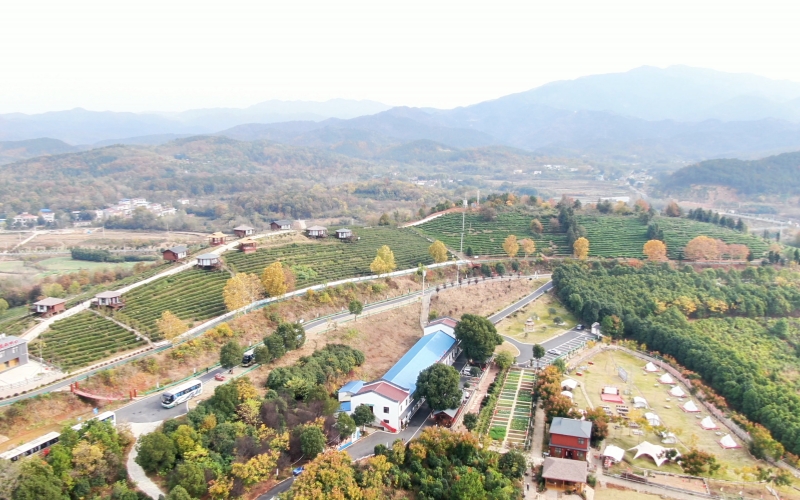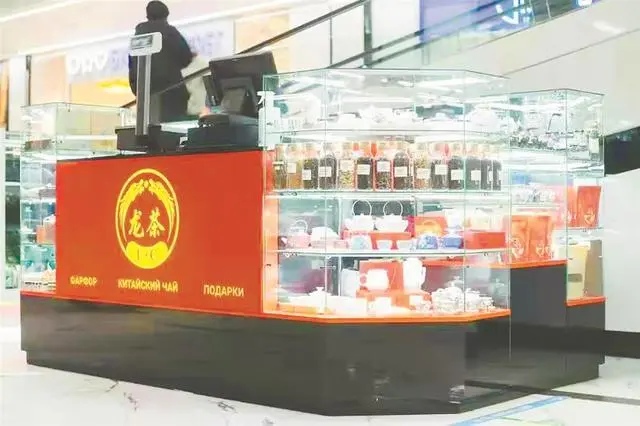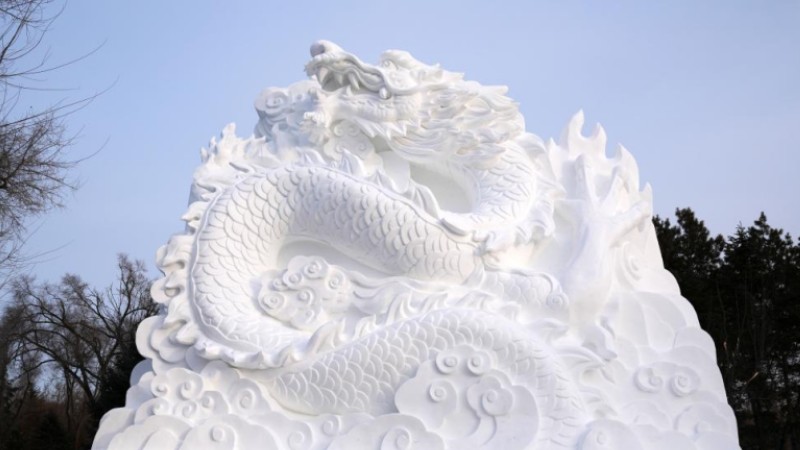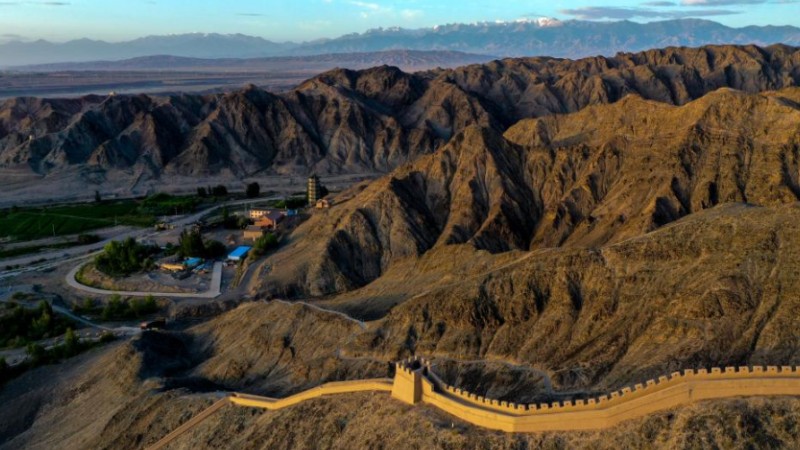Tea from Xiaogan, C China's Hubei enjoys popularity along Belt and Road
On Dec. 1, a China-Europe freight train loaded with 200 tonnes of tea produced by Hubei Xiaoganhong Tribute Tea Co., Ltd. (Xiaoganhong) departed for Russia.
During the Third Belt and Road Forum for International Cooperation in Beijing in October, Xiaoganhong, which is based in central China’s Hubei Province, signed a contract with a Russian enterprise to sell 5,205 tonnes of tea worth $61.3 million. Taking advantage of the Belt and Road Initiative, the fragrance of Xiaogan tea is further expanding overseas.
Xiaogan city is a major tea-producing area in Hubei Province, with a tea planting area of 413,000 mu (27,533 hectares) in 2016.
In the past, Xiaogan encountered challenges like sluggish domestic tea sales and high manual picking costs. These issues resulted in the wastage of around 250,000 tonnes of summer and autumn tea leaves in the tea gardens annually.
In 2016, officials from the Russian Ministry of Agriculture and Russian tea buyers visited Xiaogan. They considered summer and autumn tea as the finest raw material for producing black tea.
At the end of 2016, Xiaoganhong was established in Xiaogan through the joint efforts of seven tea companies and the local government. In early 2017, the company conducted market research in Russia and secured three black tea purchase contracts.
To meet these orders, it swiftly introduced a digital production line and achieved mass production in the same year under the guidance of the Fruit and Tea Institute of the Hubei Academy of Agricultural Sciences.
In early 2018, Xiaoganhong exported its first batch of 80 tonnes of black tea to Russia, where the tea was directly sold in Auchan, the largest chain supermarket in the country. Sales from this shipment was worth over $1.45 million.
In March 2018, it expanded its operations by establishing a tea company in Moscow. It closely collaborated with the Russian Association of Tea and Coffee Producers, with the support of the Chinese Embassy in Russia.
By participating in events such as the embassy's annual Spring Festival gathering, the annual meeting of the Russian Association of Tea and Coffee Producers, and tasting sessions, the company effectively promoted Chinese tea culture and showcased Xiaogan's rich cultural heritage.
Guided by experts from the Tea Research Institute of the Chinese Academy of Agricultural Sciences, it developed a blended black tea that catered to the preferences of Russian consumers.

Photo shows a tea plantation in Xiaogan city, central China's Hubei Province. (Photo/People's Daily Online)
Xiaoganhong's seven shareholders transformed the tea gardens into standard tea gardens suitable for mechanized harvesting. They replaced manual tea picking with machine harvesting, and introduced a fully automated black tea production line to improve efficiency and reduce costs.
In June 2019, Xiaoganhong opened a Chinese tea exhibition and sales center in Moscow. The center provides specialized and international one-stop services, including business support, legal assistance, customs clearance, and foreign exchange settlements, to facilitate the participation of Chinese tea companies in the Russian market.
This strategic move not only provides the company a significant presence in the market but also allows it to influence pricing. In 2019, the price of its tribute tea products increased by 20 percent and more than 1,600 tonnes of tribute tea products were sold. The center has attracted 306 tea companies from China. Last year, the center's total transactions were worth over $97 million.
The company has started to establish chain tea shops by collaborating with locals in Russian cities with a population of over 500,000 since 2021. By the end of that year, more than 30 tea shops were established.

Photo shows a tea shop of Xiaoganghong in a shopping center in St. Petersburg, Russia. (Photo courtesy of Xiaoganghong)
"Currently, the Chinese tea's market share in Russia has increased from 7.1 percent to 13 percent, and we have played a significant role in this," said Tu Zhigang, general manager of Xiaoganhong.
The success of the tea exhibition and sales center in Moscow has strengthened the company's confidence in further expanding overseas markets.
Xiaoganhong has identified Dubai as its next market.
According to Le Zihua, Xiaoganhong's chairman, green tea is the primary tea product on Dubai's tea market, and this aligns well with the structure of Hubei's tea industry. Dubai also serves as a crucial transit trade center for countries in the Middle East and Gulf region, extending its reach to the Americas, Europe, Central Asia, Africa, and the Middle East and Gulf region.
Le added that the company has not only established a demonstration tea garden in Dubai but is also building an exhibition and sales center, as well as an overseas warehouse.
It is partnering with local enterprises to construct a Chinese tea exhibition and sales center in Dubai. This project is nearing completion and has attracted interest from over 400 tea companies. The center is expected to commence operations in January 2024.
Photos
Related Stories
- Xingye in S China's Guangxi paves way toward prosperity through tea industry
- China releases first pan-genome map of tea plant
- Trending in China | 'Stove-boiled' tea steeped in new interest
- China's tea industry moves towards high-quality development
- Liubao tea industry thriving in Wuzhou, S China
- New-style tea beverages brew new consumption trend
- Dark tea industry thrives in county of C China's Hunan
Copyright © 2023 People's Daily Online. All Rights Reserved.









